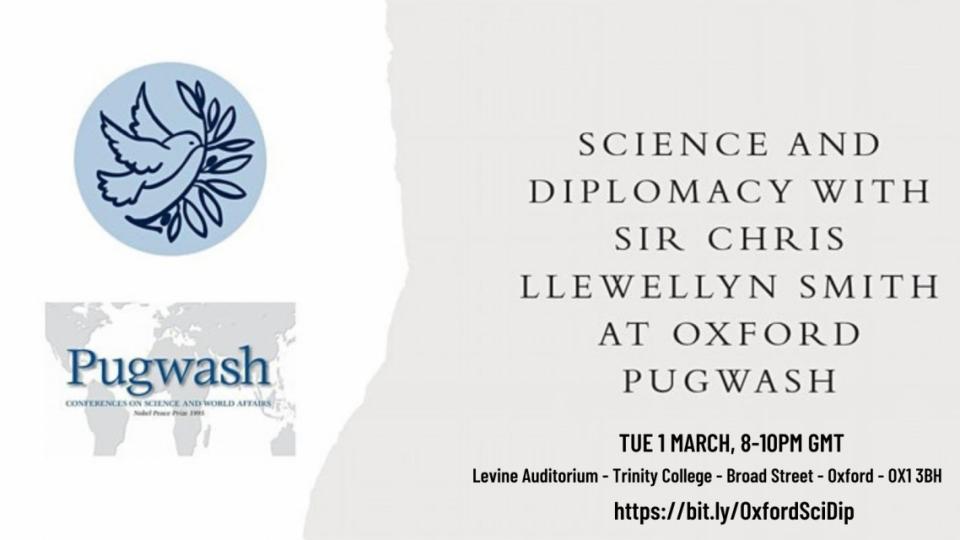Professor Sir Chris Llewellyn Smith will discuss examples, successes and failures, of attempts to bring together science and diplomacy.
'Science Diplomacy is a term that has come to be used to describe a wide spectrum of activities that involve both science/scientists and international relations/politicians/diplomats. I will discuss examples, successes and failures of:
- Science in diplomacy ie science advice supporting foreign policy objectives, both political (eg nuclear arms control) and technical challenges (eg tackling climate change)
- Diplomacy for science ie diplomacy facilitating international scientific cooperation (eg negotiating international participation in the LHC, and choosing the site for ITER, the world fusion project)
- Science for diplomacy ie scientific cooperation fostering better relations (eg through collaboration at CERN, and mobility of students and researchers).
I will end with a discussion of the SESAME (Synchrotron-light for Experimental Science and Applications in the Middle East) project, whose members are Cyprus, Egypt, Iran, Israel, Pakistan, Palestine and Turkey, which – having overcome many difficulties – is now working, and bringing together scientists from across the region.'
About Professor Chris Llewellyn Smith
Professor Sir Chris Llewellyn Smith is a theoretical physicist. He is currently leading a Royal Society study of large-scale electricity storage, and is interested in all aspects of energy supply and demand. Most recently, he was Director of Energy Research, Oxford University from 2011 to 2017, and President of the Council of SESAME (Synchrotron-light for Experimental Science and Applications in the Middle East) from 2008 to 2017.
He has served as Chair of the Council of the world fusion energy project ITER, Director of the UK's fusion programme, Provost and President of University College London, Director General of CERN (1994-1998, when the Large Hadron Collider was approved and construction started), and the first Chairman of Oxford Physics (1987-92).
Chris has written and spoken widely on science funding, international scientific collaboration and energy issues, and served on many advisory bodies nationally and internationally, including the UK Prime Minister’s Advisory Council on Science and Technology (1989-92).
His scientific contributions and leadership have been recognised by awards and honours in eight countries on three continents, including election to the Royal Society in 1984, a knighthood 'for services to particle physics' in 2001, and most recently the award of the Royal Society’s Gold Medal in 2015, and in 2019 the American Association for the Advancement of Science’s Award for Science Diplomacy and an Honorary DSc from the University of Guelph, Canada.
NOTE: to attend this event in person, you will need to provide proof of a negative lateral flow COVID test, and face masks are mandatory during the event.

